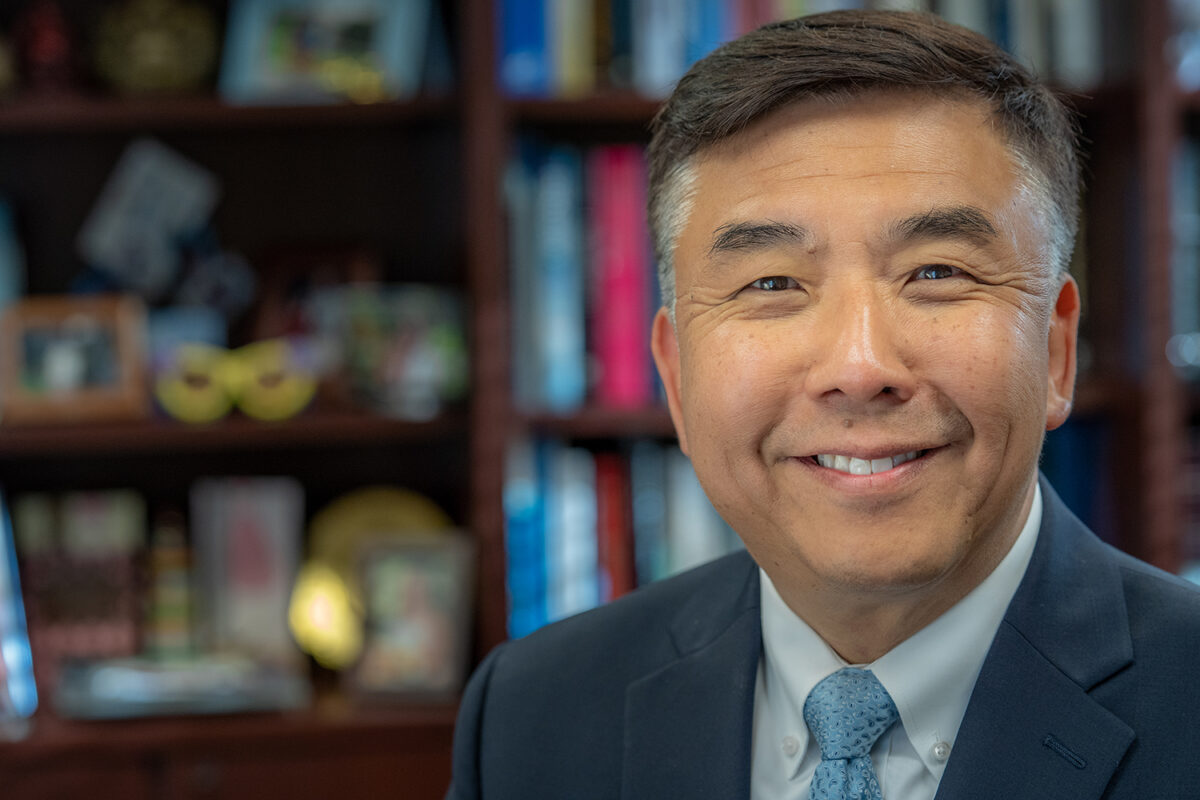
Yang Chai, the associate dean of research for the Ostrow School of Dentistry of USC, has been awarded the 2023 Paul Goldhaber Award by the Harvard School of Dental Medicine. The highest honor given by the school, the award goes to a recipient who is held in the highest international esteem in his or her field relating to oral and systemic health. The award letter notes Chai’s “outstanding national and international contributions to teaching and research in oral health science.”
“I’m very surprised and also very excited to be recognized by my peers,” Chai says, “especially when you look at other people who have won this before me.” The list of previous recipients includes Per-Ingvar Brånemark, known as the father of modern dental implants, and other scientists who broke ground on understanding an array of oral and craniofacial diseases.”
Chai will receive the award on October 17 at Harvard, where he will also deliver a keynote address. He says he plans to talk about his scientific journey. His career started as an oral maxillofacial surgeon, treating patients with craniofacial birth defects. That piqued his interest in craniofacial developmental biology and the potential of using stem cells to regenerate tissue, he says. “We have the opportunity to not only gain a better understanding about these devastating congenital birth defects, he says, “but also to use tissue regeneration to improve treatment for these patients.”
Because of his clinical training, he has had a hunger to better understand the mechanisms of craniofacial birth defects. Chai started using animal models to uncover some fundamental science about biology — and now his lab is planning their first Phase One clinical trial.
A Biological Solution
Currently, large calvarial bone defects are repaired by using either a titanium or other materials, or using autologous bone — that is, bone harvested from a different part of the patient’s body. But Chai’s work has helped to regenerate real bone and integrate that with the patient’s native bone seamlessly. “Then you can actually have a truly biological solution for these patients instead of a mechanical solution,” he explains. “In the not too distant future, our new innovative treatment will be able to change how we can help these patients.”
More Translation in the Future
Chai is also deeply involved in building a pipeline of new researchers through his lab, mentoring graduate students and postdoctoral researchers as they begin their research careers.
He is a University Professor, one of just 27 across USC, as well as the George and MaryLou Boone Chair in Craniofacial Biology and the Director of the Center for Craniofacial Molecular Biology.
The Goldhaber Award was established in 1989 in honor of Dr. Paul Goldhaber, a periodontist, researcher and former dean of the Harvard School of Dental Medicine. The Goldhaber Award is the highest research award presented by the Harvard Dental school.
In the next decade, Chai says he’d like even more of his work to be translated into the clinic — with the aim of benefiting patients. “Whether it’s about doing early diagnosis or early intervention or providing some tissue regeneration instead of using mechanical fixtures, we’ll be doing much more translation in the future.”
